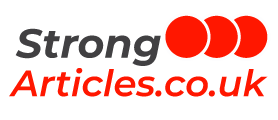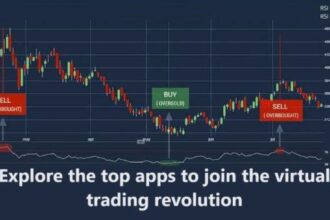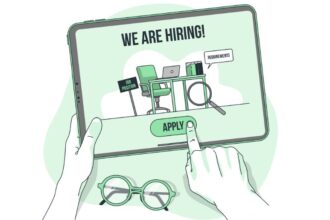No two job interviews will be the same. The structure of every job interview differs, as is the interview room environment. The questions range, and so do the interviewers and their interviewing style. The only thing that stays constant in every job interview is the “self-introduction” ;.
Very few things are as nerve-racking as the self-introduction part in a job interview. This article gives you interview ideas related to how exactly to present your self in a job interview, and if you wish to get a fast movie on the best way to present your self in an interview, here’s one for you:
Understand for Free! Access our selection of over 2000 learning videos.
Tips for a Great First Impression in an Interview
Interviews may choose the future course of action in living and offer the perfect solution is to recent problems. They can be quite a step towards your distinguished goal. You have to improve your self-confidence and study on your mistakes. Below are a few tried ideas to let you know making a sustained effect:
1. Before the Interview
Reflect on the stated details for powerful interview preparation:
Prepare Things to State
An interview always starts by having an introduction. However, people make themselves for complex questions only. You must build self-confidence with training and show the exact same to the panel. Greet the interviewers, state your name, and present your self without fear. Be clear and bold to display your respect for the opportunity. Release may include knowledge skills and experience depending in your level of expertise. Take to to include data distinctive from what is mentioned previously in the resume.
Study the Company and Interviewers
Understand the business and vacancy. Know what is estimated from you and how you are a great match for the role. It contains your experience, skills, added received understanding, and internships. Study the interviewers to know their specialization. It really helps to filtration the area among numerous subjects and domains that want more preparation. For example, a Java programmer may seldom question questions from Knowledge Science.
Dress Correctly
Look does subject and represents a principal role to make your impression. In addition it suggests your seriousness and preparation for the role. Carrying decorative, revealing, ill-fitted, very produced, also relaxed, and wrinkled outfits may leave a poor impression.
2. During the Interview
An interview isn’t only about your knowledge. It is to know you greater and gauge your personality and attitude. Below are a few details to help you present your very best variation:
Be Sensible and Obvious
So this can be a first hint on the best way to present your self in an interview – equally logic and understanding are important if you are introducing your self in a university positioning interview. Prevent falsehoods or exaggerations, and recall to support your demonstration with real-life experiences. Explain obviously that which you can offer to the business since that is what matters many to the recruiters.
Be True and Sincere
Next up, this is the way to present your self in an interview – be authentic and sincere. Interviewers price loyalty and sincerity. The more genuine and authentic you are, the faster trust may develop between you and the interviewers. You can create a great first effect and begin a powerful reference to the interviewers in the event that you present your self in a genuine and normal way.
Be Alert to Human body Language
Featuring anxiousness, quickly speech, and unclarity in phrases effects in a poor impact. Be peaceful, believe before you say, and be apparent while speaking. Look, nod, and move hands as you do generally speaking conversation. Keep your tone and pace normal.
Keep Eye Contact
Looking elsewhere reveals your nervousness and anxiety. It will also suggest uninterested behavior. Consider the interviewers once you speak in their mind or when they’re raising a question and maintain vision contact.
Generally Act Professionally
Respect the interview and behave professionally. Focus on dress and human body language. Greet the interviews. You must often be on time. Interviewers are skilled individuals who detect every moment detail.
3. After the Interview
An interview is not just about the business or cell knowing you. Use the chance to know the task role and company better.
Ready to Ask Follow-up Issues
Satisfy your queries and make the questions beforehand. For example, question complex questions like the specific task, methods, methods, programs, or application to be found in the interview (if yet to be stated). Inquire about the training and other relevant questions.
Do Follow-Up
Recognize the initiatives of the HR department. Deliver a page of gratitude due to their effort. Suggest your hope to know the results, aside from good or negative response. Be apparent and concise. Nevertheless, you must avoid giving many inquiries.
Tips on How to Introduce Yourself in an Interview
How recruiters understand you as a choice depends how well you present yourself. Self-introduction is essential since it not only enables interviewers see your personality and demonstration skills but in addition gives you an opportunity to immediately connect to employers about your skills, experience, and other achievements. Listed below are the most truly effective university positioning interview ideas on the best way to react to the “tell us about yourself” question.

Step 1: Greet Your Interviewers
Greeting the interviewers is a wonderful way to begin your self-introduction. Next, express your gratitude to the interviewers for contacting you for the task interview. The first part of one’s self-introduction should be about who you are and wherever you live. For example, you can say, “My name is Leonardo, and I’m from San Francisco” ;.
Step 2: Let Your Interviewers Know About Your Educational Background
Without increasing more on your individual details, speak about your academic background if you are a brand new graduate. Tell your interviewers the name of one’s college, college/university, and the academic amount you have. State your Cumulative Rank Items Average (CGPA) if you were to think it’s price mentioning; usually, avoid discussing grades. It’s also advisable to note the projects you have finished, if any, and the certifications you have received related to the position for that you are applying.
Step 3: An Alternate Approach for Seasoned Professionals
Have you been an experienced skilled who is wondering how exactly to present your self in an interview? If you’re one, following greeting your interviewers and expressing your gratitude, you can immediately begin discussing your newest job. Note the name of the business you work for, your present designation, the length of one’s employment, the role you perform, and the important thing responsibilities you shoulder.
Sense free to reveal fascinating data about your work accomplishments, however, be sure to right back up your statements with evidence. For example, you could claim that you’re instrumental in driving a 38 per cent improvement in customer company sentiment over a period of 12 months. That is much better than only stating that you will be a problem solver. Sound passionate while mentioning your accomplishments, but don’t boast. Also, recall to help keep the list of achievements short and sharp so that the interviewers don’t get bored.
Step 4: A Line or Two on Your Passions and Hobbies
Do not hesitate to talk about your passions and hobbies. If you’re a brand new scholar, you can feel on the co-curricular actions you have pursued. Interviewers usually are keen to understand in regards to the passions and interests of a person since passions and interests reflect one’s personality.
Step 5: The Vital Closing Statement
Here’s one of the very most wonderful and important ideas on the best way to present your self in an interview – the closing statement. A final statement is essential since it displays your intent to the interviewers. In your closing statement, explain concisely what determined you to utilize for the task and how you imagine the role aligns with your career goals. Speak about how appealing the task is and how you are ready to defend myself against challenging assignments. Tell the interviewers in regards to the key skills you possess and how you intend to implement them in the task you are applying for. Your closing statement should make the interviewers feel that you will be a great advantage to the organization. Conclude your self-introduction by saying, “Thank you, that’s exactly about me.”
Phrases to Use When Introducing Yourself Professionally
Self-introduction in English in an interview is quite crucial. Below are a few words in English suited to all candidates:
Trial 1: “Good time, I’m [Name], and I’m pleased to be here today. I recognize the chance to talk about my skills for the [Position/Job Title] role.”
Trial 2: “Having [Number] years of experience in [Field], I could produce a powerful skill set that comes in line with certain requirements of this position. I’m wanting to contribute my expertise to this role and the business as a whole.”
Trial 3: “I’m very self-motivated [Position/Job Title], and I could constantly provide effects in my prior roles. My proficiency in [Skills/Qualifications] is really a testament to my dedication to continuous improvement and reaching success.”
Trial 4: “With [Years of experience] in [Skills/Qualifications], I’m confident in my capacity to create meaningful contributions to this organization. I’m thrilled to become listed on a group that values innovation and excellence.”
Trial 5: “I’m enthusiastic about [Field] and am driven to excel in that industry. My experience in [Skills/Qualifications] has prepared me with the mandatory methods to be a property to this company.”
Trial 6: “I reveal the company’s values of [Goal/Value] and am wanting to be part of a group that gives my responsibility to creating a good influence in the industry.”
Trial 7: “My career in [Field] has been focused on developing my skills and expertise. I’m thrilled to utilize my understanding and experience to this role and carry on my development within the company.”
Trial 8: “As a [Position/Job Title], I prioritize awareness of detail and effective problem-solving. My powerful function ethic and connection skills permit me to collaborate effectively with peers and provide quality results.”
Trial 9: “Centered on my skills and experience, I’m confident that I’m an excellent choice for this position. I’m wanting to find out more about the company’s perspective and targets and how I can subscribe to its success.”
What Does Your Self-Introduction For the Interview Require To Cover?
1. Your Details
Give your name, where you’re from, and some other appropriate personal information. Do not specify a lot of details, like everything you have reached throughout activities or arts during your academics. Providing a lot of such needless details might create a negative impact.
2. Qualifications
Spotlight your appropriate knowledge, certifications, and some other education that has prepared you for the role. You can also mention the decades you got licensed and what resulted in using the certification.
3. Work Experience
Examine your appropriate function experience, including your responsibilities, achievements, and any significant projects or initiatives you’ve been a part of.
4. Outside Interests
Mention any interests, offer function, or other pursuits that report your personality, abilities, and values.
5. Your Values
Examine your individual and qualified prices and how they align with the company’s quest and culture.
6. Future Plans
Share your long-term career targets and how this position matches in to your qualified growth plans.
Self Introduction in Interview

1. Samples for Freshers
Listed here is a test introduction for freshers. Change the facts according to the domain of expertise.
Sample 1
| Hi, my name is Emma William. I have completed B. Tech. in Biotechnology from IIT, Kanpur. I done my dissertation on microbial practices and bacterial fermentation, where I only done all the tests below my supervisor’s guidance. I understood the discovered practices effectively and want to help expand enhance my knowledge and skills. Contemplating this, I do want to use for the Microbiological Challenge Assistant position. |
Sample 2
| Thank you for contemplating my request for an interview. I am Harry Grint, an M. Tech. in Microbiology from Massachusetts University. Besides individually taking care of my dissertation projects, I have received hands-on experience inside my internships. My domain of training has been in antimicrobial opposition, where I came across exciting benefits printed in a clinical journal. Moreover, I find curiosity about Virology and have inked a specialization class on the same. |
2. Samples for Experienced Candidates
Individuals holding demonstrated knowledge in their domains usually takes support from these area:
Sample 1
| Hello, I am Rita Roy working as an instructor and researcher for approximately five years. I started my career through a popular on line teaching program where I helped a lot more than 1000 students to qualify for national-level aggressive examinations. After finishing my doctorate studies, I joined Marymount School, LA, as Assistant Professor. Having about ten years of experience, I am suitable for the role of Professor and therefore wish to apply. |
Sample 2
| Hello, I am Christine Fernandez, and I have already been working as a content writer for 2 yrs now, where I also manage the obligation of staff lead. I previously worked as a content creator at Infinity Inc. for two years. I have also received certifications in SEO and strategies to create great content. I also hold modifying experience taking care of 50+ articles. I wish to succeed more in my abilities at your company and manage the content advertising department through various on line and offline platforms. |
What Do Interviewers Expect in Your Self-Introduction?
Understand that interviewers have no curiosity about your individual life. In a appointment, recruiters are just enthusiastic about analyzing your assurance, social, and communication abilities to ascertain if you are a good fit for the corporation and the role you are applying for. Hold your self-introduction short and professional. Ideally, your self-introduction should not be longer when compared to a minute.
Things to Avoid During Self-Introduction
Recall to check out the steps mentioned in order to avoid an adverse impact in the very first answer, self-introduction.
- Avoid enlisting your skills. Somewhat, inform the abilities with demonstrated examples.
- Don’t wind up reciting your entire resume. Keep carefully the introduction short and to the point.
- Prepare the introduction beforehand. Keep from thinking abruptly and answer lacking critical details.
- Be comfortable and present qualified experience or abilities good for the company.
- Don’t repeat the resume. Include types of tools, practices, pc software, extra-curricular actions, extra learnings, and interests.
- Exclude abilities unrelated to the used role.
How Long Your Self-Introduction During The Interview Requires To Last?
In regards to the length of your self-introduction throughout a appointment, it’s vital that you reach a stability between being thorough and concise. Ideally, your self-introduction must last a maximum of 2-3 minutes. This should give you enough time and energy to cover the important thing factors about yourself and your skills while also making space for the interviewer to ask issues and participate in conversation.
Communication Skills Are Essential

Connection abilities are crucial in just about any appointment because they allow you to show yourself clearly, understand the interviewer’s issues, and display your suitability for the role. Good connection abilities may set you besides other candidates and increase your odds to be picked for the position. Here are some critical subtopics linked to connection abilities:
1. Verbal Communication
Verbal connection requires utilizing your voice to convey your message. Including your tone of voice, quantity, and clarity. In a appointment, it’s vital that you talk clearly and confidently, utilizing a tone of voice that’s pleasant and professional.
2. Nonverbal Communication
Nonverbal connection contains the body language, face expressions, and gestures. It’s important to keep great vision experience of the interviewer, sit up straight, and avoid fidgeting or other annoying behaviors.
3. Active Listening
Active listening requires paying attention to the interviewer’s issues, seeking clarification when required, and performing thoughtfully. That aspect is vital in proving that you will be engaged and enthusiastic about the position.
4. Concise and Clear Messaging
Being concise and distinct in your messaging is very important when addressing issues in employment interview. Avoid rambling or going off on tangents, and focus on addressing the issue straight and succinctly.
5. Empathy and Interpersonal Skills
Concern and interpersonal abilities include being able to relate with others, understand their perspective, and function collaboratively. These abilities are very important in a appointment, because they show that you are designed for working effectively with others and may donate to a confident function environment.
6. Cultural Awareness
Cultural understanding requires being able to speak effectively with individuals from various backgrounds and cultures. This really is important in a globalized work environment and may display your capability to change and work very well in varied teams.
By mastering these connection abilities, you are able to enhance your odds of creating a confident impact in a appointment and increase your likelihood to be picked for the position.
Conclusion
It’d help in the event that you customize the manner in which you add yourself in a meeting predicated on work experience, achievements, and academic background. It is preferred that you take note of the key details and training discussion distribution before the next college place interview.
Training can help you to keep stress-free when you add yourself on the day of the task interview. Also, ensure that you keep attention contact, be relaxed, and talk in an all-natural audio tone. Interviewers often overlook little problems or lapses since they realize that candidates are under huge stress throughout employment interview.
Be it Synthetic Intelligence, Unit Learning, Cybersecurity, Information Science, Digital Marketing, or DevOps, Simplilearn’s industry-recognized skill-based learning curriculum, can help you to master today’s most in-demand skills. Examine and enroll today!
FAQs
1. What information should I include in my introduction?
It’s imperative to express who you’re, that which you do appropriately, and why you’re the right choice for the position you’re interviewing for. Include a short summary of your academic skills and qualified experience, focusing on functions, responsibilities, and achievements highly relevant to the position at hand. Moreover, it’s helpful presenting your motivations for applying, highlighting your knowledge of the company’s values, tradition, and company objectives. However, hold this release brief and engaging, making room for further exploration of the matters throughout the interview.
2. How long should my introduction be?
Your release in a meeting should be concise and last about one to two minutes. Offer your name, academic history, relevant perform experience, important abilities, and strengths. Convey your job goal and express passion for the opportunity.
3. How do you introduce yourself more professionally?
To add yourself appropriately in a meeting, focus on an ethical greeting, state your name, note your academic history and relevant perform experience, spotlight important abilities and strengths, quickly reveal your job goal, and express passion for the opportunity. Keep it brief, confident, and dedicated to showcasing your skills for the position.
4. How do you introduce yourself to a recruiter?
When introducing yourself to a recruiter, be polite and confident. Focus on a greeting, state your name, and quickly note your overall job subject or part of expertise. Highlight your most relevant experience and abilities that match the task requirements. Note any significant achievements or certifications. Keep it brief and qualified, expressing your fascination with the position and the company.
5. What is the best answer to ‘Tell me about yourself ‘?
The very best solution for “Inform me about yourself” is a brief and focused overview that shows your relevant perform experience, important abilities, and accomplishments. Focus on a quick release of one’s name and current position, then supply a brief summary of your qualified history, mentioning a few job shows that align with the task you’re applying for. Avoid personal facts and keep consitently the result qualified and job-oriented, placing a confident tone for the remaining portion of the interview.




